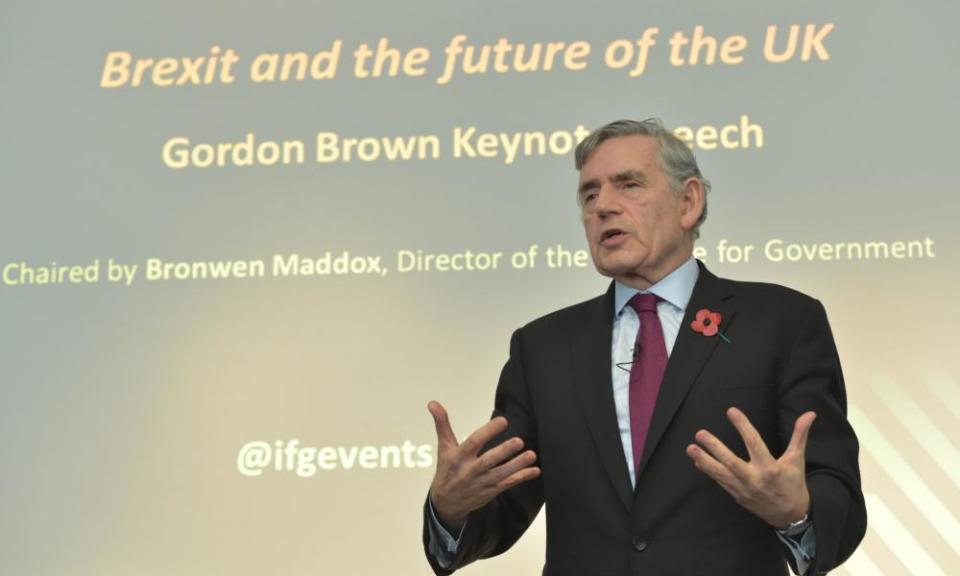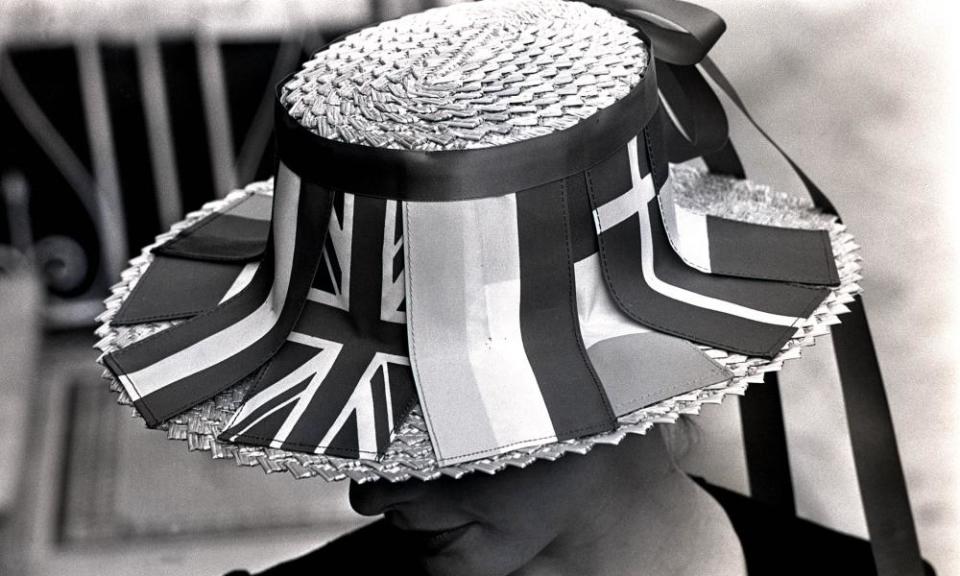Brexit: the big decision we didn’t even think about

I don’t know much about driverless cars, but we have certainly got a driverless government.
It was Gordon Brown who put his finger on the essence of the humiliating mess into which a dreadful Conservative administration has steered this once-proud nation. During a dazzling address to the Institute for Government in London last week, Brown reminded us that he had taken the question of whether or not the UK should join the eurozone so seriously that he had commissioned no fewer than 23 studies on the subject.
Again, in the 1960s, before prime ministers Harold Macmillan and Harold Wilson made their ultimately abortive attempts to join the European Economic Community, serious economic studies were undertaken to establish that it would be to our advantage to sign up. Unfortunately our wartime guest President De Gaulle was far too suspicious of perfidious Albion’s “special relationship” with the United States, and resorted twice to that impressively pithy French put-down: “Non!”
Ted Heath had a good relationship with President Pompidou, and serious work went into preparations for our eventual entry into what has become the European Union in 1973. From then on we “had our cake and ate it”: being understood when we decided not to join the Exchange Rate Mechanism (ERM) at its inception in 1978-79; being thanked profusely for our vital contribution to the setting up of the single market in 1986; being forgiven for our embarrassing and short-lived adventure with the ERM in 1990-92; being allowed a get-out-of-jail-free card with regard to the eurozone; and being granted further exemption from any revival of schemes for closer political union.
The case for a People’s Vote strengthens by the day, and it is up to the Labour party to rise to the occasion
Enter stage right the Eurosceptical fanatics, who, after Black Wednesday, (16 September 1992, when the pound tumbled out of the ERM) nagged away about “Europe” until they finally wore prime minister David Cameron down and that fatal referendum was called.
As Brown pointed out, the possibility of leaving the EU has far more serious implications than the eurozone question, yet preparations for the eventuality were there none! Not a single study until after the event. As my Portuguese physiotherapist observed the other day: “Brexit is a mistake. On such momentous issues, politicians should consider the possible consequences of their actions.”
Someone who, late in the day, had privileged insight into the government’s belated studies is the former transport minister Jo Johnson. He has resigned honourably and distanced himself from a policy that threatened, with tens of miles of lorry queues, to put precious little distance between Dover and his own constituency, which lies well inland.
His departure lit the touch-paper, and the resignation of the Brexit secretary, Dominic Raab – who confessed that he did not even understand the importance of the port of Dover – fanned the flames.
Theresa May is putting a brave face on it all, but she does not seem to realise that a lot has changed since the 2016 referendum, with surveys suggesting that 54% of respondents now opt for Remain (and four-fifths of the under-25s, whose future is at stake).
The farcical aspect of the whole Brexit so-called negotiation was summed up by Tony Blair when he told an audience of the British Academy last week that our hapless prime minister had presented the country with two options: “a pointless one and a painful one”. In the course of taking back control, “we lose the control we had”.

Or not. The case for a people’s vote strengthens by the day, and it is up to the Labour party to rise to the occasion. Both former Labour prime ministers concede that politicians should recognise the grievances behind the disaffection that led to the Brexit vote. But the majority of Labour MPs are Remainers, and should explain to their constituents why they, the MPs, would vote Remain in view of the manifest perils of Brexit.
In their speeches both Blair and Brown were aware of the dangers of patronising those Leave voters who feel let down by the system. Their emphasis is on reuniting a divided country, and explaining that voters have a lot more information now than they had in June 2016.
As for Jeremy Corbyn telling Der Spiegel that Brexit is all over bar the shouting, it is good that the shadow Brexit secretary, Sir Keir Starmer, has reminded Labour’s eccentric leader that a recent Labour conference resolution left all options open, including a people’s vote. As Brown observed last week about the time he was in charge: “Jeremy used to remind me that we should be bound by conference motions.”

 Yahoo Finance
Yahoo Finance 